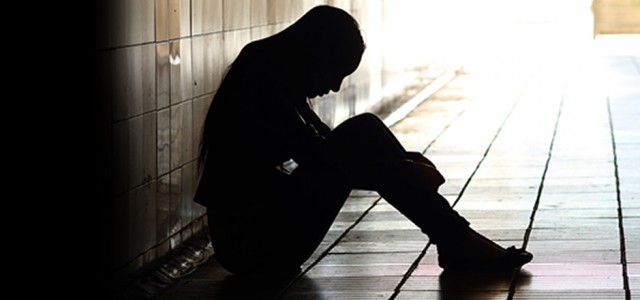Breaking mental chains: One boy’s challenge
I’VE BEEN TEACHING juveniles in a detention facility for the past year. Inside those walls of containment are bottles of brilliant creative ingenuity that haven’t had the opportunity to exercise for the world.
These fledgling inmates are learning that there are better decisions to make. To do so it takes the confidence to act. It takes the strength to avoid the peer pressure. It takes the willingness to fill that gaping hole of insecurity that occurs when one is left unaccompanied in the barren field of loneliness.
This building, like other buildings nationwide, is a revolving door. It fills and refills with new young faces entering a house of corrections that can’t correct the broken homes and communities that influence the behavior and mistakes these young people may make again. Without a support system it is highly probable that these young children will be back, because the support system at home is sitting on shaky ground. It is a rumbling ground that has the ability to swallow the rest of their childhood innocence whole.
I asked one student to write a letter to his dreams. He seemed puzzled as he stared off into the ceiling, lost in his thoughts. I walked by and he had nothing on his paper.
I asked, “What do you want to say to your dreams?”
He drew dollar signs on the paper and pointed at them. “I just want to make money.”
“Don’t you have anything else you want? What will you do when you get out of here?”
“Trapping,” he said, indicating that he would go back to selling drugs.
My face dropped with a gentle frown. “Why would you go back to that after being in here?”
“All my family hustle.”
My face was in awe because his support system was the basis of negative reinforcement that would eventually land him back in this machine called the Juvenile Justice System.
Breaking mental chains: One girl’s truth
Then there’s the story of Basheera. I met her over a year ago during a writing workshop. You could tell she was very intelligent and outspoken. She had no problem sharing her thoughts on topics ranging from emotional instability to the power of music.
She too has traveled in and out of these doors, at least five times. Last week I brought her back to the Juvenile Justice Center as a success story and not an inmate. I had her speak shortly after the workshop, which discussed guns, violence and power.
She instantly connected with the students, who are all in her age range. She discussed the obstacles she faces daily, the difficulty in transitioning to a lifestyle with healthier decisions and the enormous impact of a support system.
I stood there proudly, knowing I was an extension of that support system that is helping this young lady see how bright her star can shine. At the end of her talk students applauded. Some asked for her contact so they could reach out to her after they are released. She is motivated more than ever before with a focus on writing a book for youth, especially those in the system.
She now understands the power of her story and her support system. I know there are others like her. I’m determined to find them.
 Greg Corbin Jr. is a poet, activist, and community leader. In 2006, he founded the Philadelphia Youth Poetry Movement. He pens the “Real Talk” feature on Solomonjones.com
Greg Corbin Jr. is a poet, activist, and community leader. In 2006, he founded the Philadelphia Youth Poetry Movement. He pens the “Real Talk” feature on Solomonjones.com








